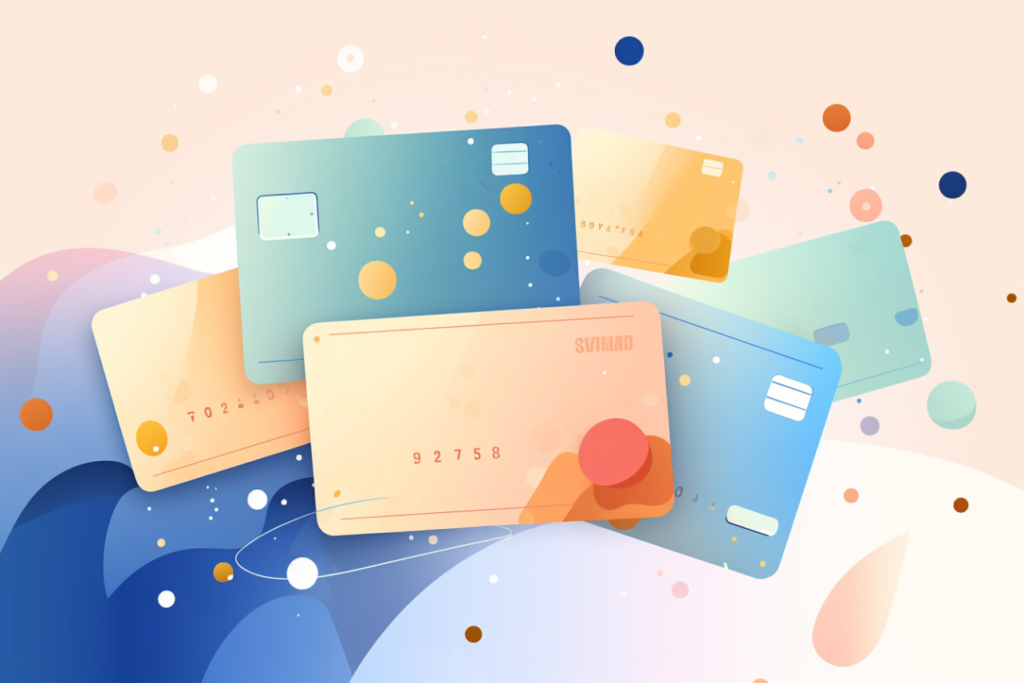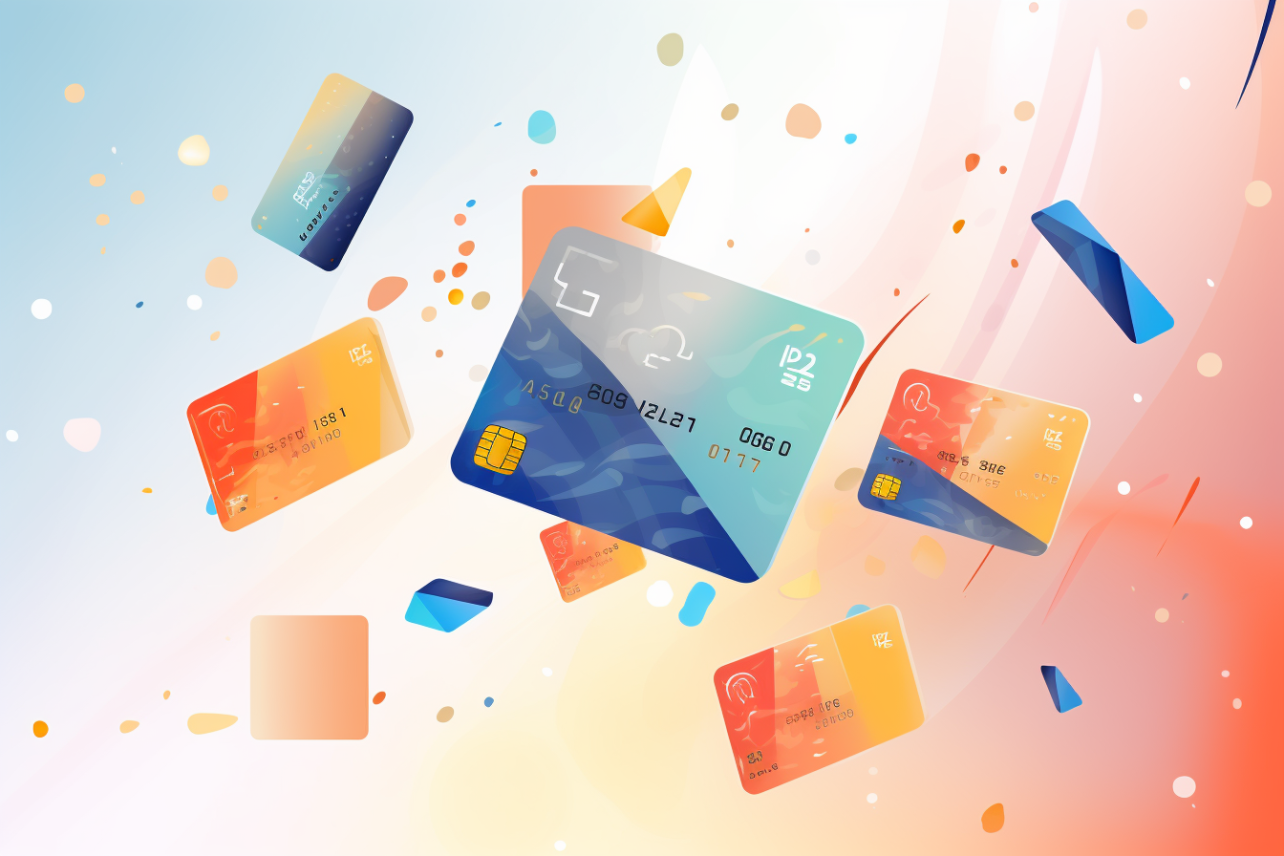Credit cards are a double-edged sword in modern financial life. They can be a convenient tool for managing your finances or become a slippery slope into debt if not handled responsibly. Understanding the advantages and drawbacks is crucial to making smart decisions with your credit. Here, we unravel the pros and cons of wielding this powerful piece of plastic.
What is a Credit Card?
Understanding what a credit card is is important before getting into the pros and cons of having and using one.
Credit cards are a form of financial tool that allows you to borrow money to pay for goods and services. Issued by financial institutions like banks, they are a convenient alternative to carrying cash. When you use a credit card, you are essentially drawing on a line of credit that you are expected to repay later. You can make purchases and pay for them afterward, usually on a monthly billing cycle.
Types of Credit Cards
- Standard “Plain-Vanilla” Credit Cards: These offer no frills or rewards and are straightforward.
- Rewards Cards: Provide rewards for purchases through cashback, points, or miles.
- Secured Credit Cards: These require a security deposit and are often used by individuals looking to build or repair their credit history.
- Charge Cards: You must pay the balance in full each month and do not have a pre-set spending limit.
- Subprime Credit Cards: Targeted at individuals with poor credit histories, these often come with high-interest rates and numerous fees.
- Balance Transfer Cards: These offer low or no interest on balances transferred from another credit card for a set period.
- Business Credit Cards: Designed for business use, features and rewards tailored to business spending.
The Upside of Credit Cards

Now that you are familiar with all of the different types of credit cards available, here are some of the upsides.
1. Convenience and Global Acceptance
Credit cards offer unparalleled convenience, especially in today’s digital world. They are accepted globally and are often the preferred payment method for online purchases, hotel bookings, and car rentals. This worldwide acceptance makes them indispensable for travelers and online shoppers.
2. Cash Flow Management
Credit cards can be a great way of managing your cash flow. They allow you to make purchases even when you don’t have immediate funds in your bank account, giving you the flexibility to pay for them at a later date, usually within a grace period of up to 20-30 days interest-free.
3. Rewards and Incentives
Many credit cards offer rewards programs. This allows you to earn points, miles, or cash back on your purchases and rewards can be redeemed for travel, merchandise, gift cards, or statement credits. If you pay your balance in full each month, these rewards are a way to make your money work harder for you.
4. Building Credit History
Using a credit card correctly is an easy way to build a credit history. Regular use and prompt payment of your credit card bill can help establish a good credit score, which is crucial for loan approvals, competitive interest rates, and even job applications.
5. Enhanced Security
Credit cards offer enhanced security features not available with cash or debit cards. Most credit cards have $0 liability policies for fraudulent transactions, protecting you if your card is lost or stolen.
6. Purchase Protection
Oftentimes, credit cards come with additional protections such as extended warranties, return protection, and purchase protection, which can repair, replace, or reimburse you for purchases that are stolen or damaged within a certain time frame after buying.
7. Budgeting Tools
Many issuers provide budgeting tools and spending insights with their credit card services. You can track your spending in categories, set alerts for when you’re approaching your credit limit, or analyze your monthly expenses.
8. Financial Cushion for Emergencies
A credit card can provide a critical cushion in a financial pinch, such as an unexpected car repair or medical bill. This can help you cover immediate costs without dipping into your savings or emergency fund.
9. Interest-Free Loans
If you pay off your balance in full each month, you essentially get an interest-free loan for the period between your purchase and the payment due date. This can be a smart way to manage your finances without incurring extra costs.
10. International Travel Benefits
Credit cards can offer significant benefits like no foreign transaction fees, free travel insurance, and access to airport lounges for those who travel internationally.
11. Easy Expense Tracking and Reporting
Credit cards simplify expense tracking and reporting, which can benefit personal budgeting and business accounting. They provide a clear record of your purchases, often categorized by type, which can be helpful during tax season or when tracking business expenses.
The Downside of Credit Cards
While there are many upsides to having a credit card, there are some downsides, too.
1. High-Interest Rates and Debt
Credit cards typically carry higher interest rates compared to other forms of credit. If you have a balance from month to month, the interest can quickly compound, leading to a cycle of debt that can be difficult to escape.
2. Temptation to Overspend
Having access to money can lead to impulse buying and spending beyond your means. Since you’re not parting with cash immediately, it can be easy to overlook the impact of cumulative credit card purchases on your financial health.
3. Impact on Credit Scores
While responsible use of credit cards can build your credit score, excessive borrowing and missed payments can damage it. High credit utilization (the ratio of your card balance to the credit limit) can also negatively affect your score.
4. Fees and Penalties
Annual fees, late payment fees, cash advance fees, balance transfer fees, and fees for transactions abroad are all common in the credit card space. These can add up and increase the cost of having a credit card.
5. Risk of Fraud
While credit cards offer robust fraud protection, they are still susceptible to theft and fraudulent charges. Dealing with the aftermath of credit card fraud can be time-consuming and stressful, even if you’re not held financially responsible.
6. Potential for Credit Damage
If you’re unable to keep up with payments or if you default on your credit card, your credit history will suffer. This can have long-term consequences, making it harder to obtain loans, mortgages, or even jobs in the future.
7. Minimum Payments Trap
Only making a minimum payment can seem like a relief when funds are tight. However, minimum payments can extend the debt repayment for years and pay much more due to accrued interest.
8. Complex Terms and Conditions
Credit card agreements can be dense and difficult to understand, with many terms hidden in fine print. This complexity can lead users to be unaware of the costs associated with their cards.
9. Balance Chasing
Some credit card companies engage in the practice of “balance chasing,” where they reduce a cardholder’s credit limit as they pay down their balance, which can negatively impact credit utilization ratios.
10. Dependency
Relying on credit cards for everyday expenses can create a false sense of financial security. Without a real emergency fund, this can lead to a precarious financial situation.
Making Credit Cards Work for You
To harness the benefits of credit cards without falling into the pitfalls, consider the following tips:
- Pay on Time: Always pay your credit card bill by the due date to avoid late fees and interest charges.
- Full Payments: If possible, pay off your balance in full each month to avoid interest.
- Budget: Treat your credit limit not as a target but as a safety net. Spend within your means and according to your budget.
- Understand the Terms: Be clear about the interest rate, annual fees, late fees, and other charges associated with your card.
- Use Rewards Wisely: Choose a card with rewards that match your spending habits and lifestyle.
Credit cards, when used intelligently, can be a financial ally, providing a range of benefits from convenience to rewards and security. They can help you manage your finances, build a good credit history, and even save money through rewards and protections. The key is to use them wisely and avoid the pitfalls of overspending and accruing high-interest debt.
You might also be interested in: The 9 Best Cash Back Credit Cards For 2023







